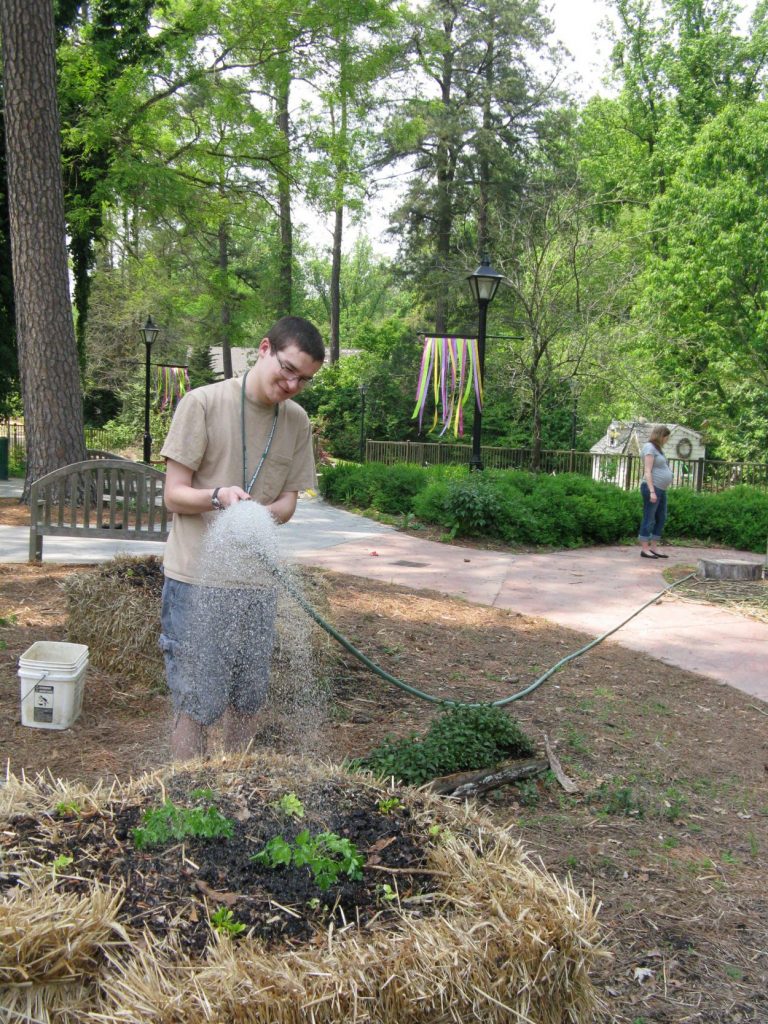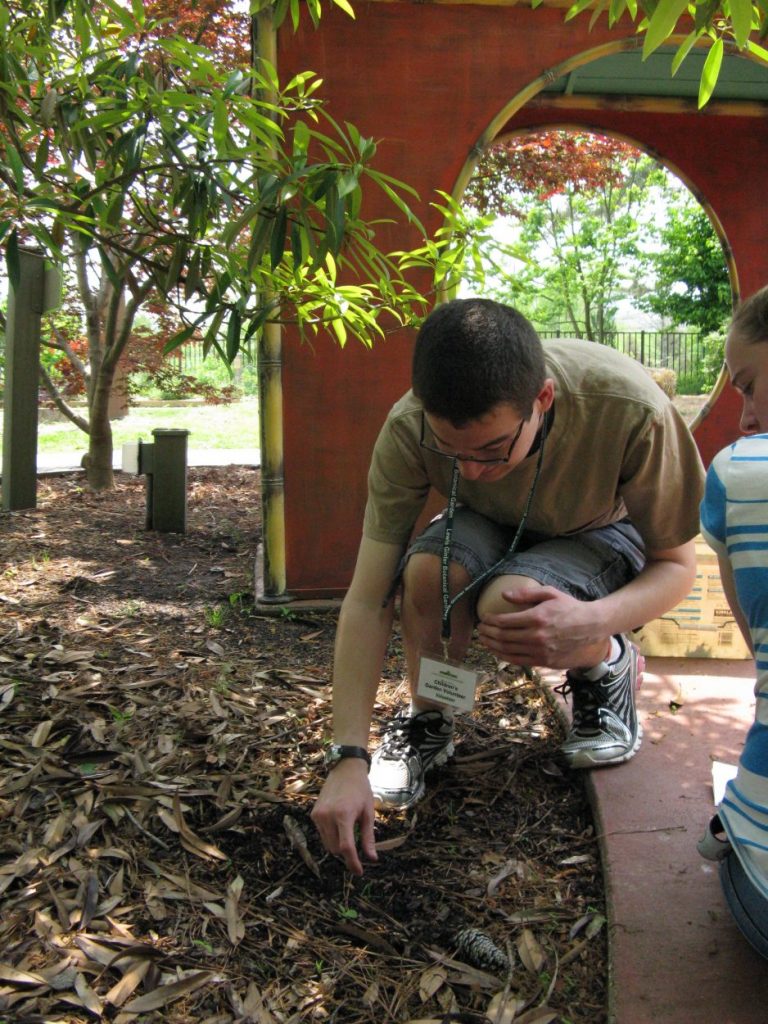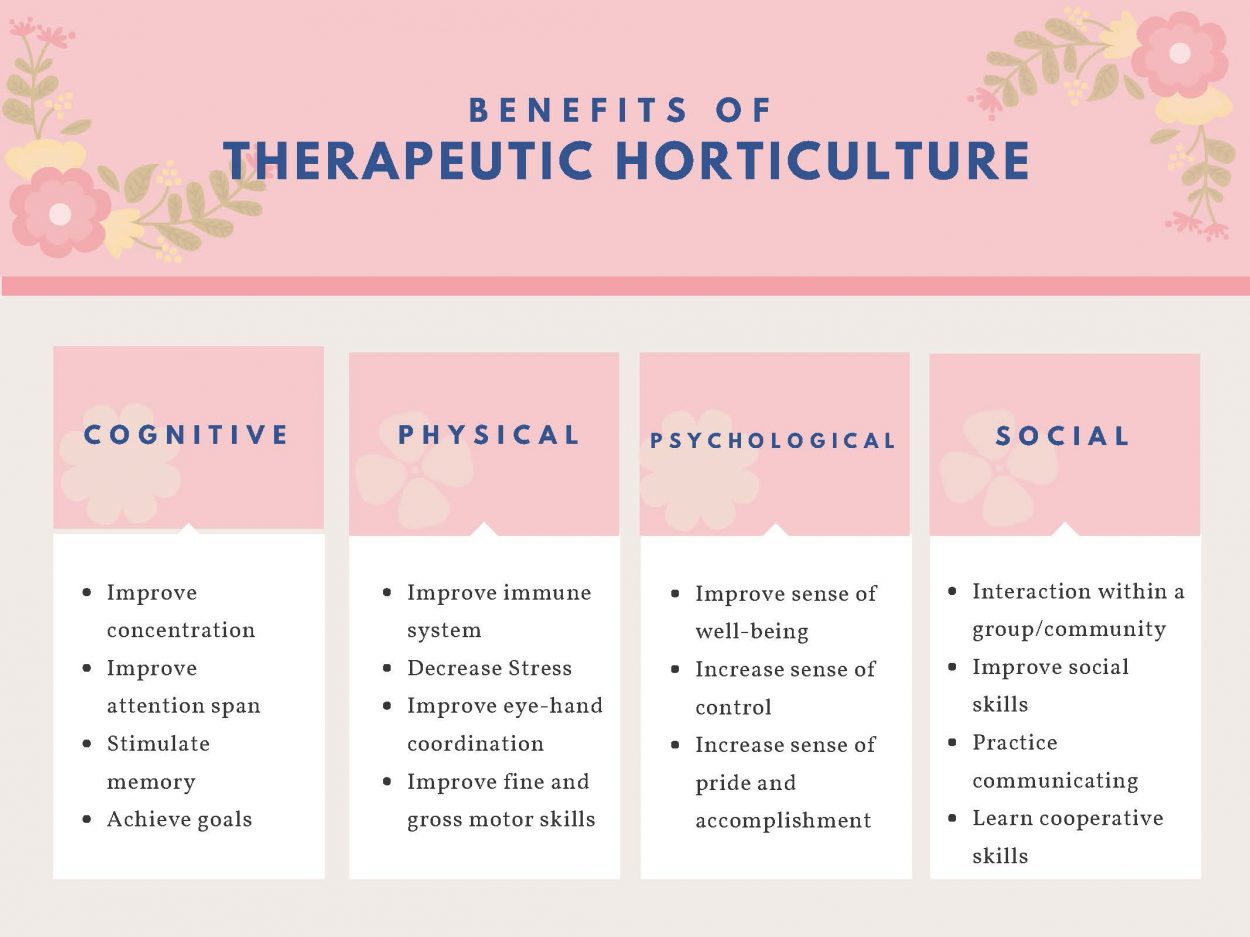Therapeutic Horticulture: Soothing the Heart, Mind & Soul

Therapeutic Horticulture: Ethan Lindsey, a youth volunteer who participated in the Garden’s Vocational Program, planting parsley. The Vocational program offers community youth the opportunity to explore a variety of careers and vocational training, but also allows youth lots of time working outside and with plants, which many find therapeutic. (photo courtesy of The Founders Center)

A youth watering a garden he just helped to plant. Taking care of plants can be therapeutic for anyone. (photo courtesy of The Founders Center)
Social workers are unique: we operate from the knowledge that a person’s overall well-being depends greatly on the conditions of his or her environment. The impact of nature and experiences out-of-doors are often under-valued in my field and many others. Lewis Ginter Botanical Garden— where nurturing the mind, body, and spirit is a constant, enduring theme — is in the early stages of research and development of a program in therapeutic horticulture. As the Garden’s first social work intern, I have been assisting with the design of this program that will align with the Garden’s prevailing mission to connect people through plants to improve communities.
Therapeutic Horticulture (TH) consists of interactions that use nature — or plant-related activities — to improve participants’ physical, psychological, and social well-being. Anyone can benefit from time spent working with plants. TH projects and activities are designed to help the individual or group become more mindful, not just during the TH activity, but in other areas of their lives. An individual does not have to be in distress or experiencing a health problem to benefit from TH, but TH is especially useful for specific groups of people. For example, seniors experiencing cognitive decline show reduced agitation, increased feelings of self-esteem and autonomy, and develop a greater sense of purpose, when engaging in plant-based, TH activities. Individuals on the autism spectrum may experience lessened hypo- or hyper-sensitivity, better social interaction and reduced agitation, all symptoms of the disorder. Lewis Ginter Botanical Garden provides vocational training for students from Faison School of Autism, The Founders Center, St. Joseph’s Villa, Henrico County Public School CoWEP (Cooperative Work Experience Program), and Northstar Career Academy who are looking to gain transferable skills to enter the workforce after high school. This partnership allows students to independently engage in a variety of horticulture tasks that improve fine and gross motor skills while also allowing the individual to connect with the natural environment. Activities involving plants can be adapted to meet many different needs simultaneously. All of us can benefit from the reduced stress and greater relaxation that plants, gardens, and natural, outdoor spaces can bring us.
Lewis Ginter Botanical Garden aspires to host a certificate program to train service providers in the uses of plants and gardening activities to increase mindfulness, reduce stress, and improve coping skills, among other benefits. This initiative is boosted by interest from collaborators like Virginia Commonwealth University’s Office of Continuing and Professional Education and the VCU School of Social Work. Working under the direction of Randee Humphrey, the Garden’s Director of Education, I’ve been a field intern at the Garden since August, during my foundation year as an MSW candidate at VCU. My supervisor, Judy Thomas, MSW, Ph.D., who is an Assistant Professor in teaching at the VCU School of Social Work, has been guiding my research. We’ve just launched a survey directed to social service providers and Garden patrons to assess community needs and interest in a therapeutic horticulture program.
For me personally, this has been a creative learning experience of imagining all of the ways the Garden can be a restorative place for a wide variety of people who are in need of a calm and natural environment. TH will provide a valuable addition to expanding the Garden beyond its walls. Our current idea for the program is that it will include two parts:
- Introduction to Horticulture
- Skills specific to therapeutic horticulture with special populations
We envision the material will be delivered through weekend-long workshop segments with hands-on activities within the garden and within the community. Stay tuned for updates as this exciting program develops.

